
Becoming a software leader isn’t for the faint-hearted; no longer in the cozy comforts of coding, you’ll suddenly be in meetings, honing your communication skills.
You’ll probably be the one making tough decisions and will frequently have the last word.
Furthermore, you’ll also have to manage your subordinates. It’s important that you understand their needs, connect with them, and look at situations from their point of view.
It’s a lot to handle and can be pretty nerve-wracking. That’s precisely why we’ve compiled this article – to hand out some tips on how to become a great software engineering leader.
Table of Contents
Know that you need a change of perspective
Transitioning from an engineering role to a leadership position often requires a mindset shift. You’ll no longer perform the same tasks or keep your old schedule.
Whereas software engineers spend their days, well, engineering software, software leaders have multiple new responsibilities: mentoring junior engineers, meeting with other departments, ensuring projects match the company’s goals, etc.
To rise to these duties, software leaders will have to focus on a new skill set; they’ll have to learn to teach their juniors, communicate with non-technical individuals, and examine a situation in the context of the entire business.
It’s not very likely that any of this was required when you were a ‘regular’ engineer.
Boris Shimanovsky, CTO of ZipRecruiter, emphasizes that learning is a core skill for a software lead:
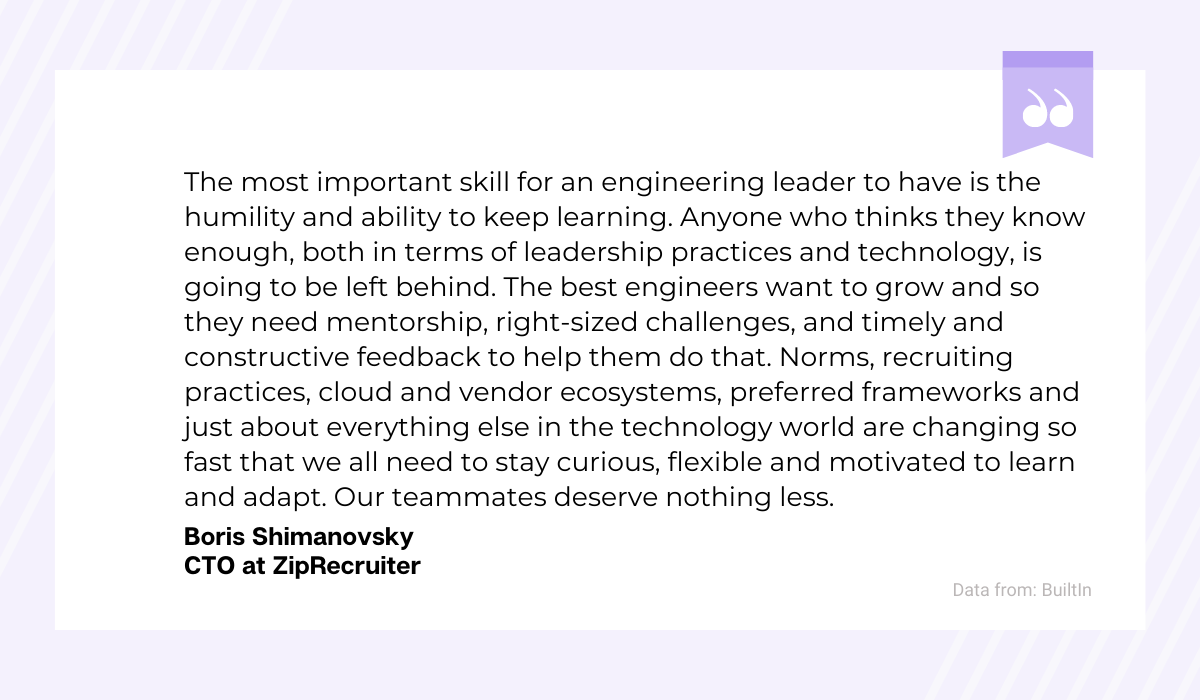
Shimanovsky underlines that a software team lead will have to acquire a multitude of new skills they’d have small use of as an engineer.
Indeed, it’s been proven that great leaders are seldom born. Instead, they’re made, often through training, experience, and environment. Take a look at these numbers:

Those automatically born as great leaders are few and far between. It’s more often the case that you must learn to become a leader and slowly grow into that role.
One example of this change of perspective is controlling your interference with your team’s tasks. It’s not unusual for software leaders to be more technically savvy than their team.
As such, there’ll be situations where you can solve a task in a couple of hours, but it’ll take your engineers the entire day.

Get unreal data to fix real issues in your app & web.
However, you’ll have to control your impulse to jump in and help; the meddling is counterproductive for your team’s success.
Think about it – your engineers work on software and grow while they do so. They aren’t qualified to speak to the VP of Sales about client contracts.
You, however, are, and you might be the only one. Focus on your own responsibilities, and leave the coding to your engineers.
They might even have an innovative solution or a breakthrough. As Ed Catmull stated:

By stepping back from non-urgent tasks and giving your engineers freedom, all of you can focus on your priorities with greater efficiency.
Identify yourself with the team.
Feeling proud of yourself after becoming a software engineering leader is perfectly normal.
After all, you’re finally being recognized for all of your hard work. However, while it’s important to realize your worth, don’t lose sight of your new team.
Although you are technically managing the team, you are still part of that team.
You and your team members are still working towards the same goals – with a slightly different structure – and you must identify as part of the group.
A recently-appointed engineer team lead asked for advice on Reddit regarding leading his new team, and the most upvoted comment was the following:
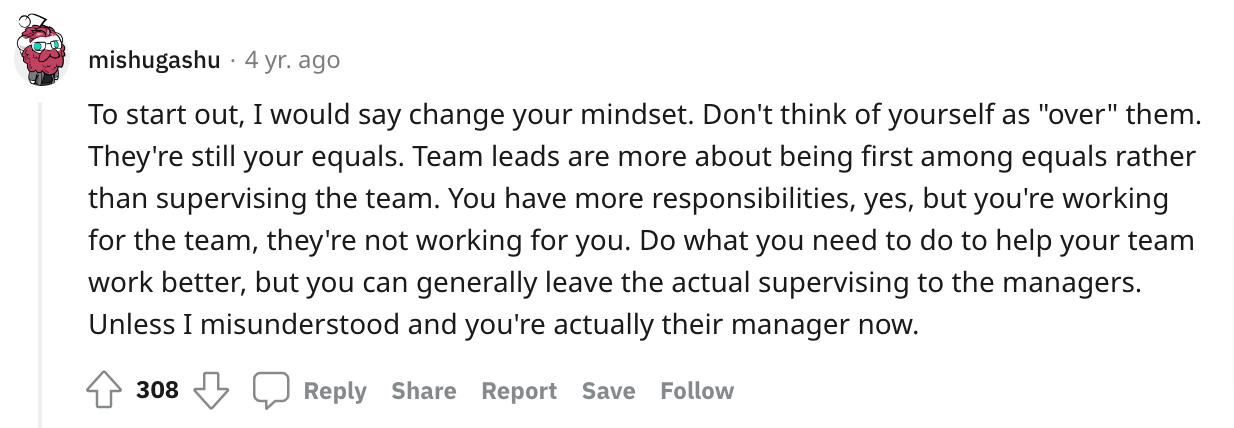
Just as the Reddit user highlights, a team lead is never “over” their team members. You are still equal with them, working towards a shared objective.
This philosophy dramatically influences accountability and ownership principles in a team.
If a problem should happen, such as a new bug, don’t point figures at the exact engineer responsible.
The bug happened within the team; ergo, it’s the team’s mess, not just a single individual’s.
Furthermore, it should be resolved together. Instead of chewing out the culprit, show the engineer how to fix and avoid the issue in the future – your team will thank you.
Katarzyna Man, Head of Applications Development at Deviniti, also stressed this point:
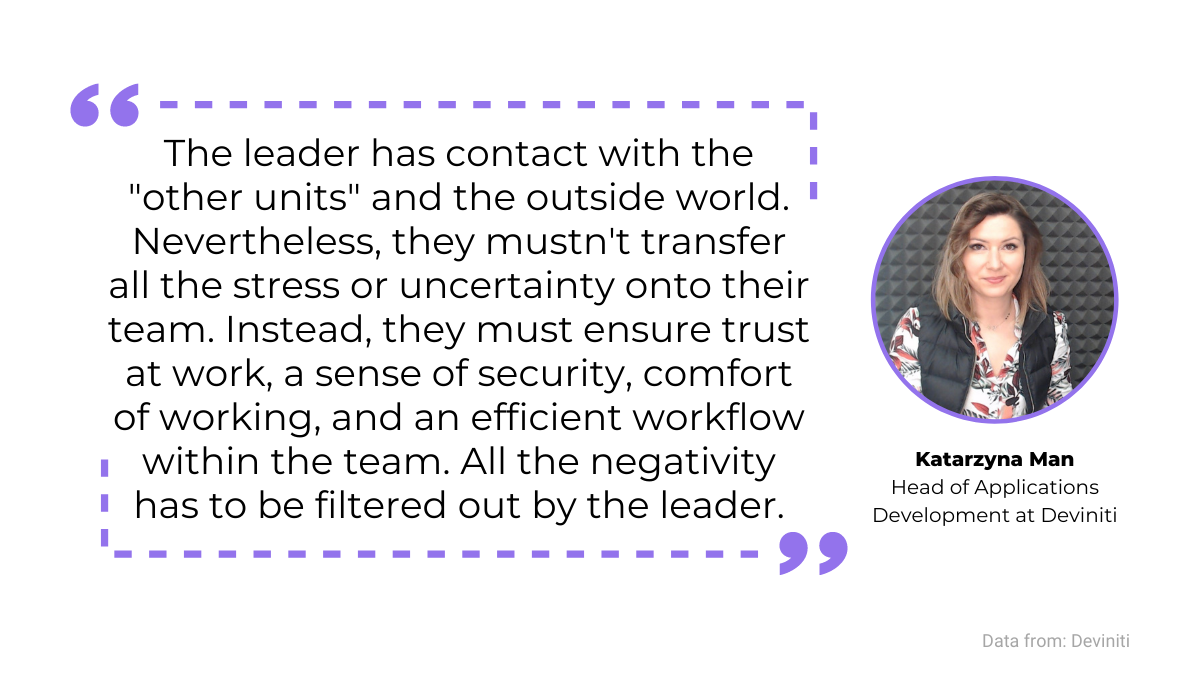
Even if there is a more severe issue, the responsibility still falls onto you.
You don’t have to be at fault necessarily, but since your team made the mistake, you have a duty to take ownership of those actions as the team leader.
Wasif Jahangir, Software Engineering Manager at Careem, echoed this sentiment. When asked what the main purpose of a good team leader is, he answered:
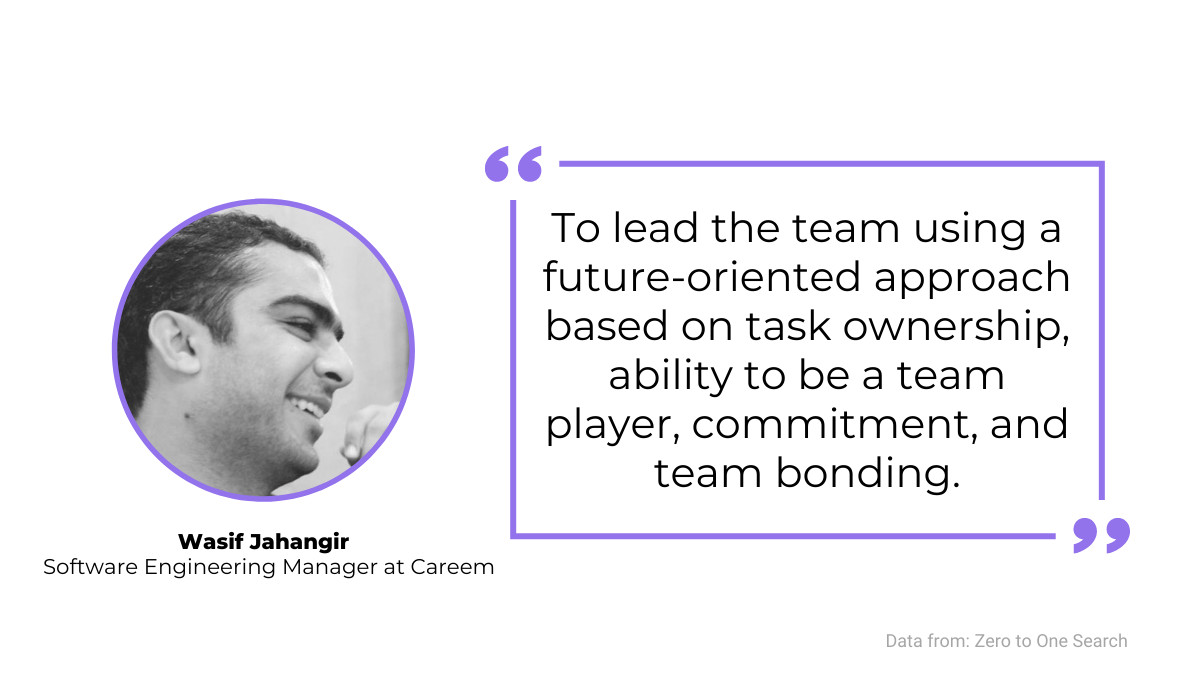
Being a team player is also important in favorablee situations.
Whenever your team achieves success, it’s no one’s achievement but the team’s.
You didn’t beat this month’s KPIs all by yourself; your team did.
When such huge victories happen, don’t assign the credit just to yourself – the combined efforts of you and your team members enabled that success.
Inspire your team
Managers make the best of a situation, whereas leaders inspire the best possible situation.
If you’re a true software engineering leader, it’s your job to compel your employees to do more.
The good news is, you won’t have to give any speeches.
A Quora user asked for ideas on how to inspire his software engineering team (besides giving pep talks) and received the following response:
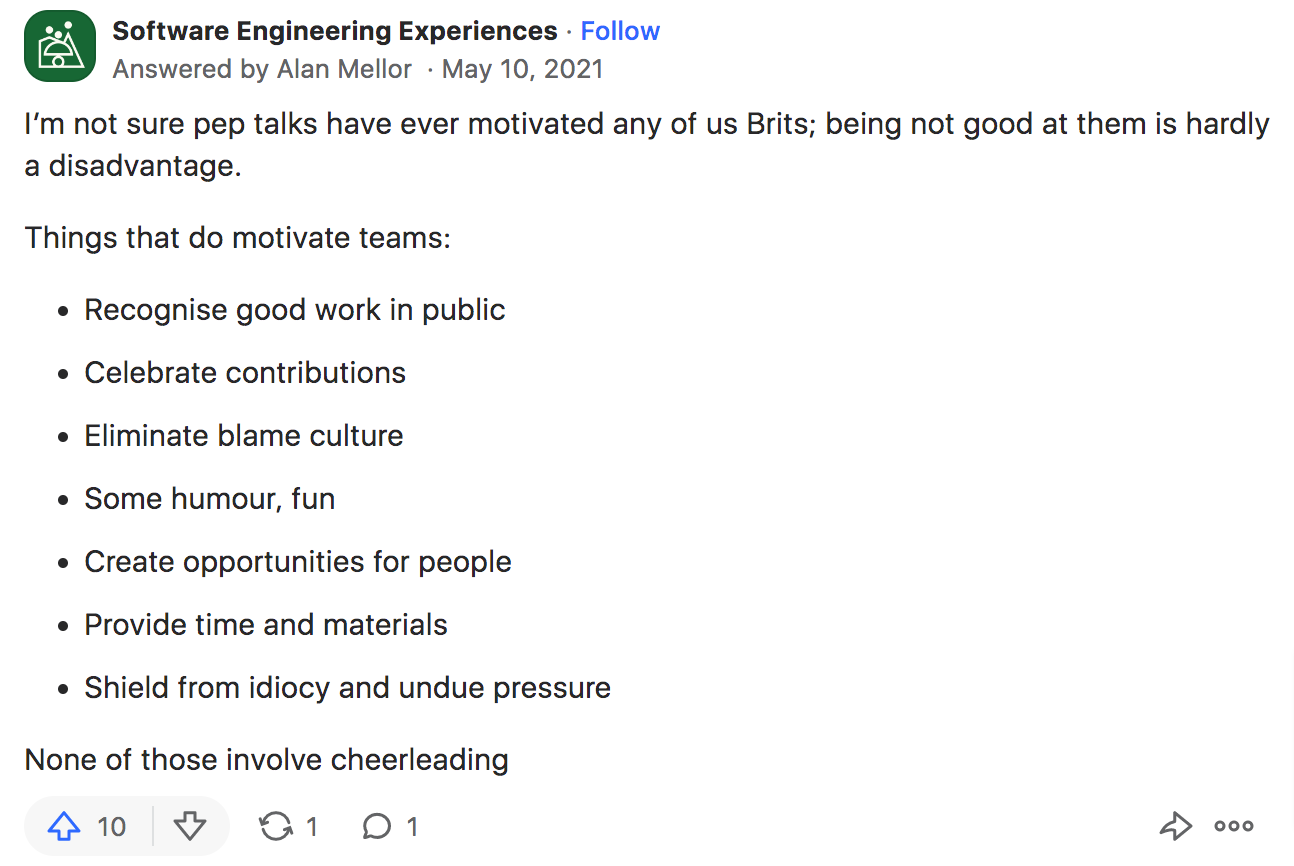
You can employ various tactics – listed above – to bring out the best in your team members.
For example, consider hosting a hackathon. A hackathon is a fun, carefree opportunity for engineers to code outside their routine work activities.
The free-reign environment allows for experimentation without any pressure. Such autonomy could bring about innovations your engineers wouldn’t think of otherwise, providing new solutions at work.
Recognizing your employees’ achievements is also a great way to inspire them. After all, no one wants their hard work to go unnoticed.
Building a workspace where expressing gratitude is the norm will likely inspire engineers; when they know their efforts are valued, they’ll be more motivated to take on tasks.
There are even tools you can use to help with this.
For example, Workhuman has manufactured a Social Recognition platform for thanking coworkers, tracking employees’ career highlights, celebrating community wins, and more.
In the video below, you can see how it works:
With Workhuman, you can manage your team members with the attention they deserve, inspiring them to your company’s cause.
It’s also worth pointing out that your team will be most inspired at work if they do something they love.
Not everyone enjoys the same tasks or thrives in the same environment.
Some engineers might love the challenges of tackling old, documentation-less projects, whereas others might revel in writing the technical documentation.
Each employee will find their own niche and perform well in that area.
Jessica McKellar, Founder of Pilot, commented on this as well:
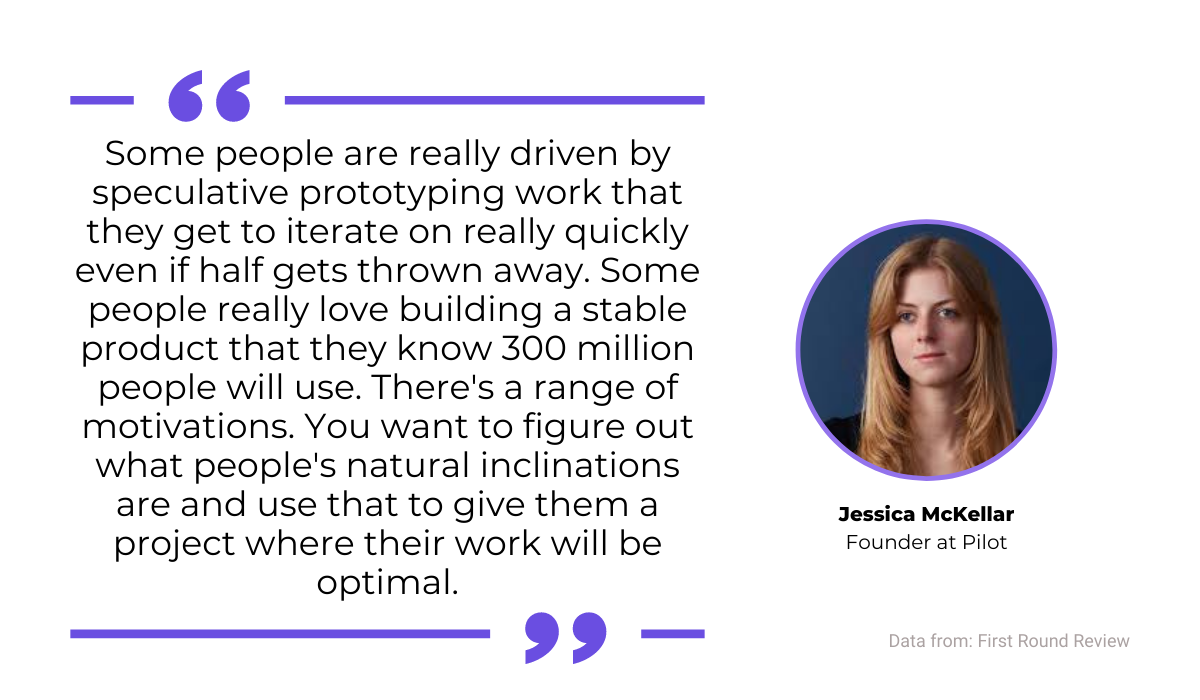
By allowing your employees to work in fields that interest them, you’re guaranteed to inspire them to perform more efficiently for the company.
Support your whole team
Not only should you strive to inspire your team, but you should also make a point to support them.
The main component of an engineering leadership role is to guide your employees and help them realize their full potential; you’re their support system.
One sure-fire method of supporting your team members is an open-door policy. Employees should know they can come to you for advice and encouragement whenever.
Besides, whatever the issue is, two heads will probably resolve it more quickly than one. Guy Martin also commented on this:
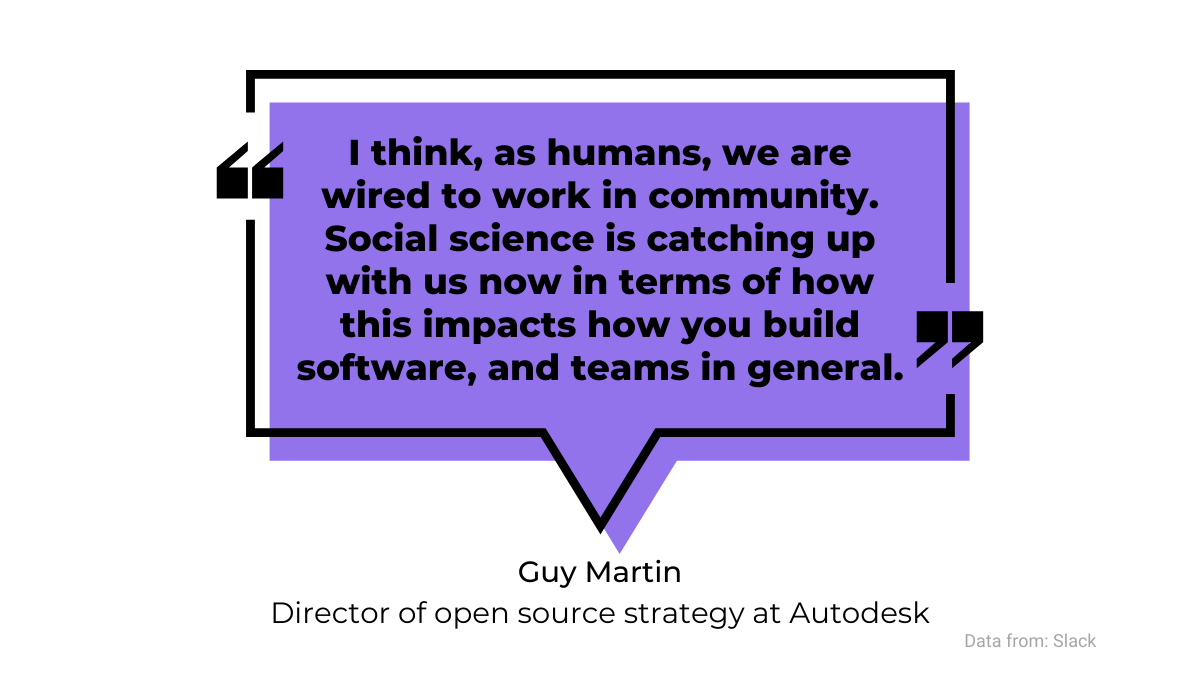
However, it can be intimidating to approach one’s superior, and rigid procedures only make the process scarier.
As such, keeping an open-door policy is a good idea; communicate to your team that one knock on your door is enough to get your attention.
Besides your psychological support, your team members will also need support in terms of resources.
For example, since you are, after all, a team, there must be adequate collaborative spaces for you to meet, debate, and brainstorm.
These spaces should be comfortable and equipped with sufficient furniture and technology.
However, the numbers are worrying – a recent report by Knoll showcased poor user adaptability across collaborative spaces:
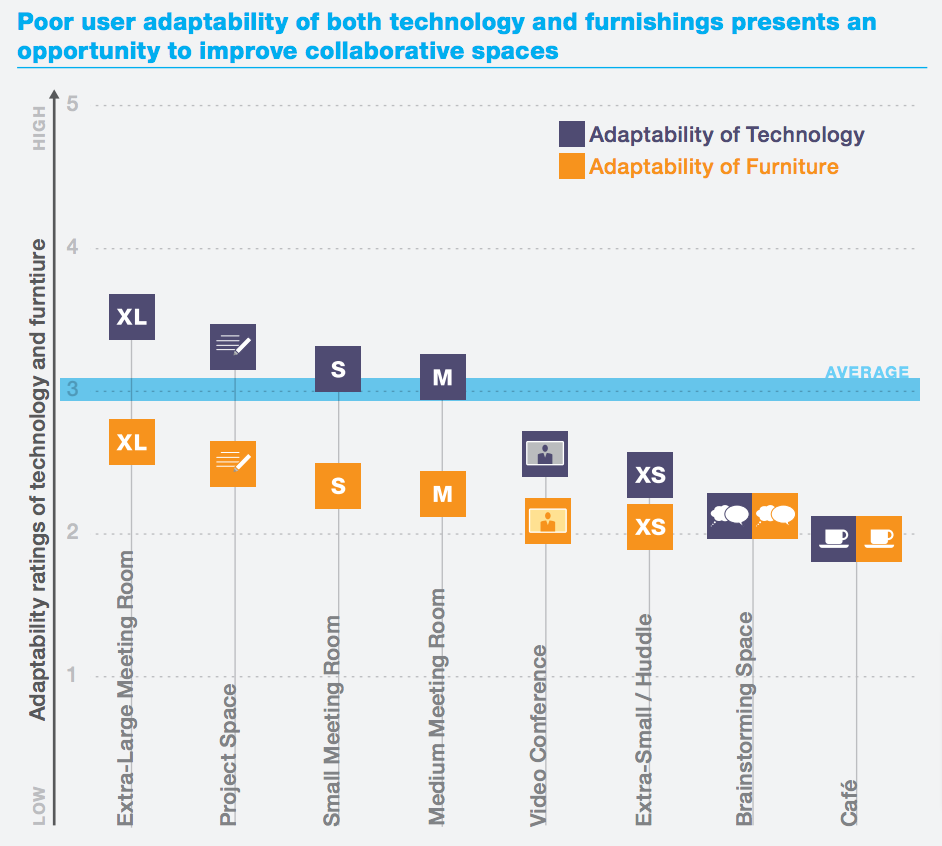
The graph clearly shows that furniture and technology are lacking. This is particularly worrying for software engineers, who are surrounded by technology for 99% of their workday.
Do your best to try to change these conditions; appeal to upper management, and fight to secure a supportive working environment for your team.
When we say support your team, we’re not referring only to your software engineers.
Being a supportive engineering leader sometimes means supporting other departments as well, since you have technical knowledge that can be highly useful to departments such as Marketing and Sales.
Take a look at the visual below. Those are examples of what Sales might ask you when hosting a demo.
You must be there to provide that support – you’re helping them make a sale and therefore assisting the entire company.

By educating the non-technical managers, you’re supporting them and helping the company progress.
Improve team efficiency
One of a software leader’s main tasks is to oversee operations and help their team achieve results.
In other words, a team leader should try to optimize work processes and boost their employees’ efficiency.
However, how to do so? Multiple options exist to increase efficiency, but it can be challenging to choose the right path.
For example, one dilemma you might have is whether to opt for resource efficiency or flow efficiency.
Resource efficiency is where work is transferred from one employee to another. The visual below illustrates it:

However, the problem with this workflow is that every person is a specialist.
They have been specifically trained for a specific task and are the only specific person who can accomplish that task.
As a result, if even one person should be unavailable or lag behind, the entire project will halt. Every individual is reliant on the other.
That’s why flow efficiency might be a better option. With flow efficiency, the entire team is acquainted with one feature area, creating a more spread-out, generalized knowledge pool.
The image below depicts the theory:

This concept might delay the feature’s release a little, but a single individual doesn’t bottleneck the project’s success.
Instead, the entire team can handle the project, juggling components between themselves.
This workflow is more frequently used in Agile and ensures that projects won’t hit roadblocks; it’s worth thinking about implementing it among your team.
Another huge efficiency-booster is automation – it replaces frequent and monotonous work and streamlines repetitive, time-consuming tasks.
As an engineering leader, you’d greatly assist your team by implementing automatized processes, as it would allow them to focus on more complex chores.
For example, Shake is a tool that will dramatically optimize your bug reporting.
After coming across a problem, all users need to do is shake their device – a detailed bug report will be sent to the engineers immediately. You can see how it looks below:
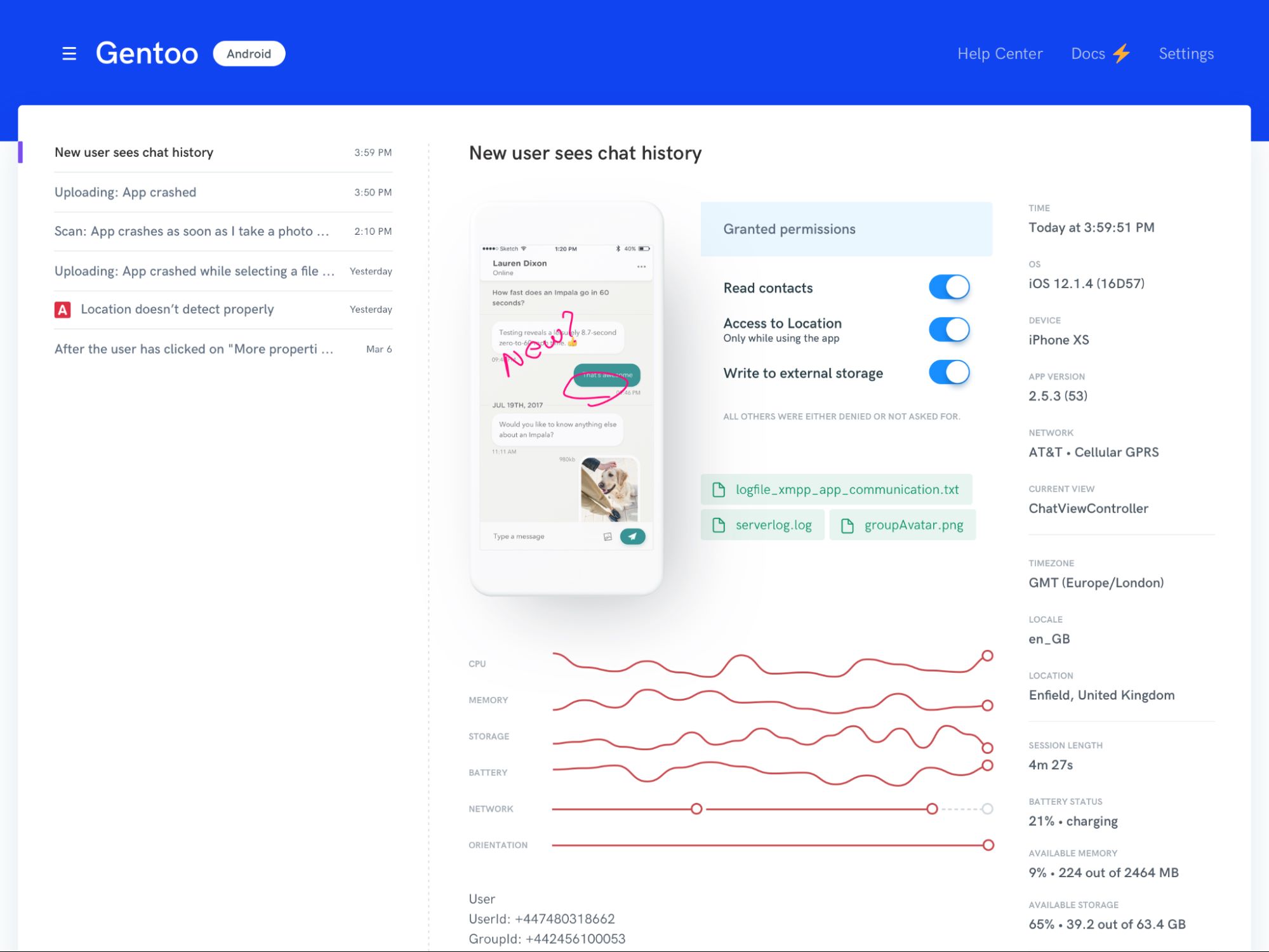
The bug report can contain screenshots, screen recordings, logs, steps to reproduce, app version, and more.
This makes the report as extensive as can be and should significantly improve your standard bug reporting procedure.
Encourage the professional development of your team
Finally, a great software engineering leader pushes their team members forward in their careers. Engineers tend to be lifelong learners as the tech world changes at a frighteningly quick pace.
New languages and practices are constantly cropping up, and your engineers will want to stay on top of all the latest developments both for professional and personal growth.
In fact, the majority of the latest generation view professional development as a critical factor.
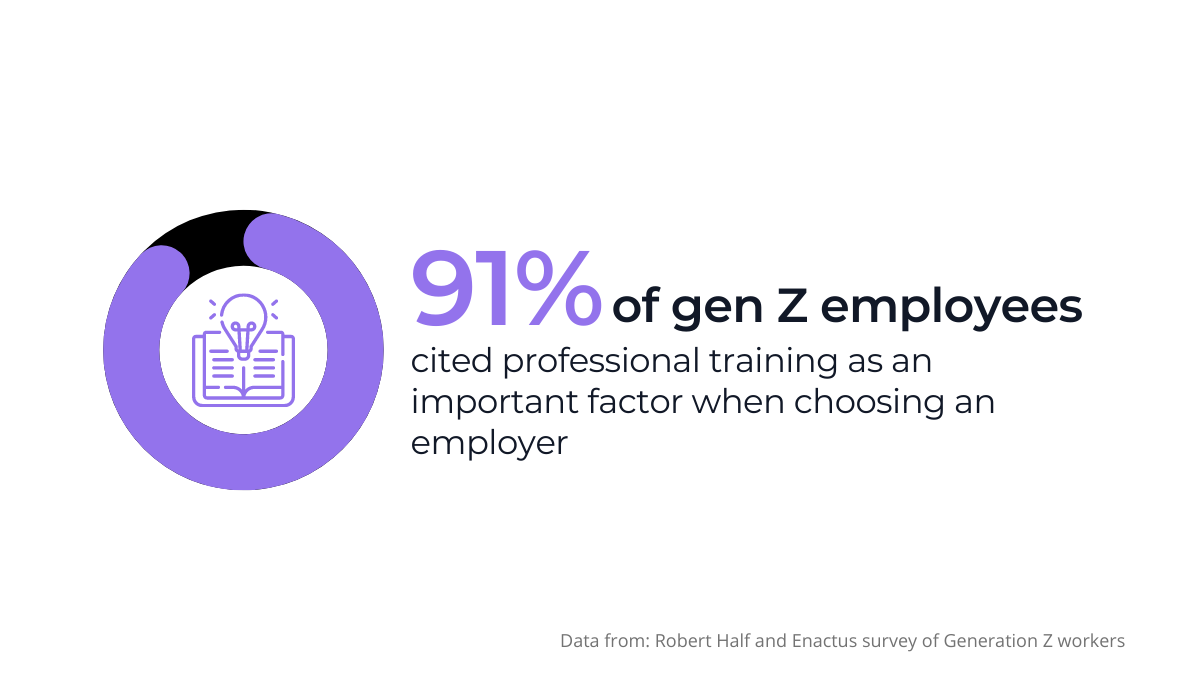
At a whopping 91%, most Gen Z employees seriously examine the professional development opportunities when looking for new employment.
As such, you should ensure you’re offering enough upskilling chances for your team members.
Teaching team members new skills is beneficial for your company as well.
The tech landscape is continuously evolving, and we could be looking at a completely different environment in just a few years.
If you want to remain competitive, your best bet is to further your current employees’ knowledge.
They’ll likely be thankful for the learning opportunity, and your company will prosper from the additional expertise.
A recent study actually proved that having a versatile skill set is desirable to businesses:
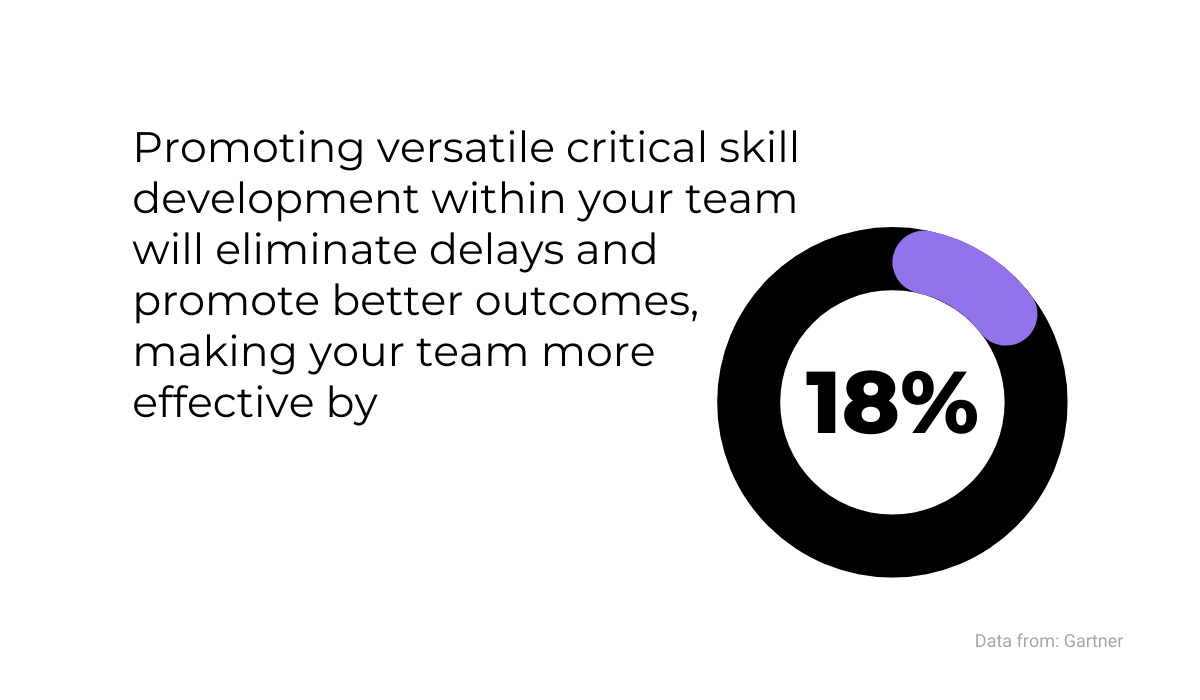
By employing multitalented workers, companies will more easily adapt to market changes and therefore also achieve better results.
One way to provide this education is through online learning platforms such as Udemy.
This is an excellent choice as there is no time limit; once your purchase a course, you’ll have access to it for life.
In other words, your employees can clear the course at their own pace and won’t have to rush to finish anything.
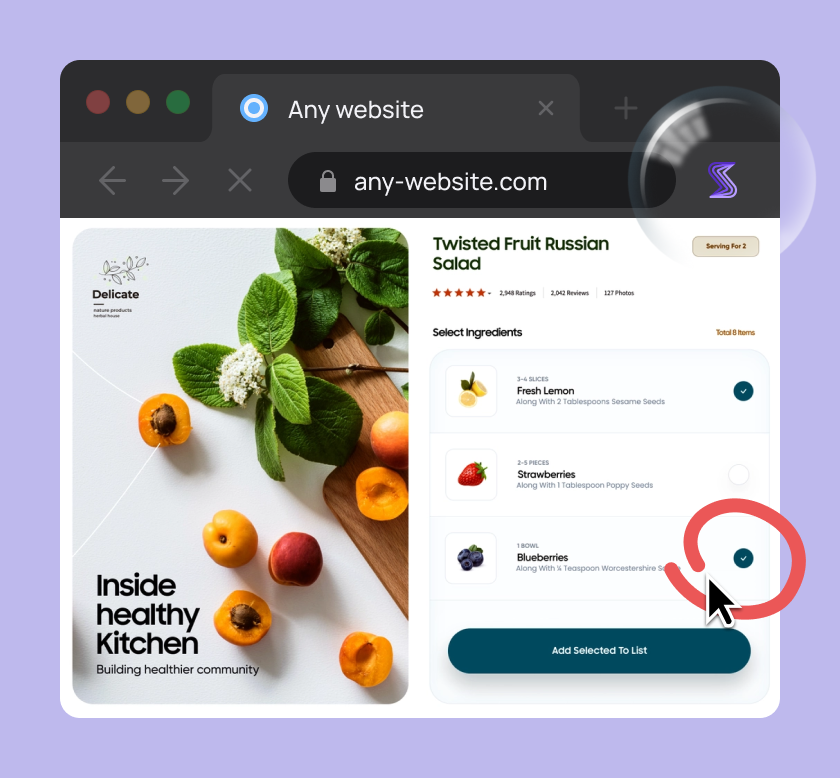
Capture, Annotate & Share in Seconds with our Free Chrome Extension!
Alternatively, there are also several e-learning platforms available to help upskill workers.
Degreed, for example, is a fantastic resource, as it integrates everything your workplace uses to learn all in one place – courses, articles, podcasts, mentors, videos, and more.
In addition to this, there are personalized insights into each individual’s skills and growth capabilities.
You can see Degreed in action in the video below:
An e-learning platform is a superb solution, as it gathers all possible learning materials and assessments in one centralized location.
Conclusion
Becoming a great leader isn’t something that will happen overnight. It’s a process that will evolve over time as you grow more settled into the role.
It goes without saying that the position requires several mindset changes and a desire to inspire and support your team members continuously.
In fact, other departments will lean on you in a crutch as well. Besides that, improving team efficiency and advocating professional development are also necessary.
For all leaders out there, hopefully, we were some help for all leaders out there – this article should put you on track to become a fantastic software engineer leader.




